National
War against the US? Chrystia Freeland says Canada, allies need to build ‘New World Order’ to combat Trump
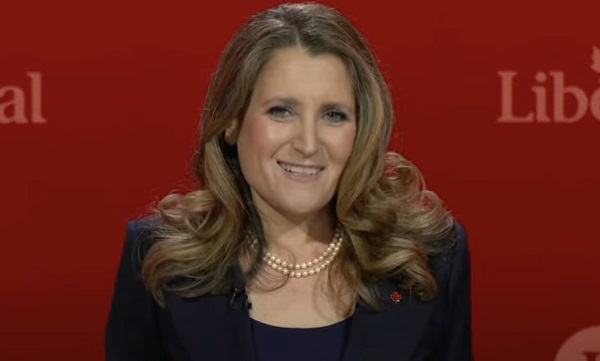
From LifeSiteNews
During last night’s Liberal leadership debate, candidate Chrystia Freeland called for ‘democratic’ countries to ‘build a New World Order’ to combat Trump and his threat of making Canada the 51st U.S. state.
Former finance minister and deputy prime minister Chrystia Freeland has called on “democratic” countries to “build a New World Order” to combat U.S. President Donald Trump.
During the February 25 English-language Liberal Party leadership debate, Freeland, who is running for party leadership to replace Prime Minister Justin Trudeau, declared that Canada and its allies must “build a New World Order” to protect against U.S. President Donald Trump’s threat to turn the nation into the 51st U.S. state.
“We need to recognize President Trump has said dozens of times he wants us to be the 51st state,” Freeland stated around the 36 minute mark of last night’s debate. “I don’t think any of us wants to be the leader who was asleep at the wheel and didn’t get Canada defended, did not work with our democratic allies to protect our borders.”
“They want to work with us it’s time for us to step up at home to urgently reach out to them and build a New World Order where democracy and Canadian sovereignty is protected,” she declared.
Media outlets have long described talk of a “New World Order” as a conspiracy theory, but globalist organizations such as the World Economic Forum (WEF) and the United Nations (UN) continue to give credence to the concept, by publicly calling for and working towards a worldwide “Great Reset” or other similarly named agendas.
To that end, former WEF chairman Klaus Schwab has insisted for decades that “stakeholder capitalism” is the optimal form of global governance in a “reset” world, allowing the biggest corporations to partner with political leaders in deciding key policy agendas, and relegating the governments’ voice to “one among many, without always being the final arbiter.”
Freeland is not the only politician to admit that plans to establish the New World Order are underway. As LifeSiteNews reported in 2021, during the height of the COVID “pandemic,” a senior Australian health officer said that authorities will consider what contact tracing looks like “in the New World Order.” The term has also been used by former U.S. President Joe Biden, former Polish Prime Minister Mateusz Morawiecki and others.
Freeland’s comments caused a stir on social media, with many accusing the mainstream political sphere of hypocrisy for labelling the term “New World Order” a “conspiracy theory” while actively advocating for it.
“Liberals: ‘A New World Order is a conspiracy theory. Stop spreading misinformation,’” one user posted on X. “Also Liberals: ‘We need a new world order to protect ourselves from Donald Trump.’”
Liberal Party ties to the WEF and ‘New World Order’ ideology
During the last few years, during which time Freeland served as deputy prime minister and finance minister, the Liberal Party has routinely come under fire for its ties to globalist organizations like the World Economic Forum.
In fact, Freeland’s own ties to the WEF seem extensive, with her receiving a personal commendation from former WEF leader Klaus Schwab.
Others have also pointed out that right around the time she announced her bid for Liberal leader, the WEF’s profile on Freeland disappeared from the group’s website.
Another Liberal leadership candidate, Mark Carney, also has ties to the WEF, as does outgoing Prime Minister Justin Trudeau.
Alberta
It’s On! Alberta Challenging Liberals Unconstitutional and Destructive Net-Zero Legislation

“If Ottawa had it’s way Albertans would be left to freeze in the dark”
The ineffective federal net-zero electricity regulations will not reduce emissions or benefit Albertans but will increase costs and lead to supply shortages.
The risk of power outages during a hot summer or the depths of harsh winter cold snaps, are not unrealistic outcomes if these regulations are implemented. According to the Alberta Electric System Operator’s analysis, the regulations in question would make Alberta’s electricity system more than 100 times less reliable than the province’s supply adequacy standard. Albertans expect their electricity to remain affordable and reliable, but implementation of these regulations could increase costs by a staggering 35 per cent.
Canada’s constitution is clear. Provinces have exclusive jurisdiction over the development, conservation and management of sites and facilities in the province for the generation and production of electrical energy. That is why Alberta’s government is referring the constitutionality of the federal government’s recent net-zero electricity regulations to the Court of Appeal of Alberta.
“The federal government refused to work collaboratively or listen to Canadians while developing these regulations. The results are ineffective, unachievable and irresponsible, and place Albertans’ livelihoods – and more importantly, lives – at significant risk. Our government will not accept unconstitutional net-zero regulations that leave Albertans vulnerable to blackouts in the middle of summer and winter when they need electricity the most.”
“The introduction of the Clean Electricity Regulations in Alberta by the federal government is another example of dangerous federal overreach. These regulations will create unpredictable power outages in the months when Albertans need reliable energy the most. They will also cause power prices to soar in Alberta, which will hit our vulnerable the hardest.”
Finalized in December 2024, the federal electricity regulations impose strict carbon limits on fossil fuel power, in an attempt to force a net-zero grid, an unachievable target given current technology and infrastructure. The reliance on unproven technologies makes it almost impossible to operate natural gas plants without costly upgrades, threatening investment, grid reliability, and Alberta’s energy security.
“Ottawa’s electricity regulations will leave Albertans in the dark. They aren’t about reducing emissions – they are unconstitutional, ideological activist policies based on standards that can’t be met and technology that doesn’t exist. It will drive away investment and punish businesses, provinces and families for using natural gas for reliable, dispatchable power. We will not put families at risk from safety and affordability impacts – rationing power during the coldest days of the year – and we will continue to stand up for Albertans.”
“Albertans depend on electricity to provide for their families, power their businesses and pursue their dreams. The federal government’s Clean Electricity Regulations threaten both the affordability and reliability of our power grid, and we will not stand by as these regulations put the well-being of Albertans at risk.”
Related information
- Conference Board of Canada socio-economic Impacts of Canada’s 2030 Emissions Reduction Plan – (April 2025)
- Alberta Electric System Operator’s position on Canadian Energy Regulations
Alberta
Alberta’s future in Canada depends on Carney’s greatest fear: Trump or Climate Change
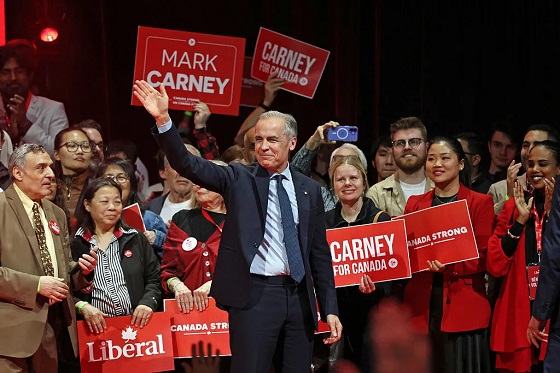
Oh, Canada
We find it endlessly fascinating that most Canadians believe they live in a representative democracy, where aspiring candidates engage in authentic politicking to earn their place in office. So accustomed are Canada’s power brokers to getting their way, they rarely bother to cover their tracks. A careful reading of the notoriously pliant Canadian press makes anticipating future events in the country surprisingly straightforward.
Back in December, when Pierre Poilievre was given better than 90% odds of replacing Prime Minister Justin Trudeau—and Mark Carney was still just an uncharismatic banker few had heard of—we engaged in some not-so-speculative dot-connecting and correctly predicted Carney’s rise to the top spot. Our interest was driven by the notoriously rocky relationship between Ottawa and the Province of Alberta, home to one of the world’s largest hydrocarbon reserves, and how Carney’s rise might be a catalyst for resetting Canada’s energy trajectory. In a follow-up article titled “The Fix Is In,” we laid out a few more predictions:
“Here’s how the play is likely to unfold in the weeks and months ahead: Carney will be elected Prime Minister on April 28 by a comfortable margin; [Alberta Premier Danielle] Smith will trigger a constitutional crisis, providing cover for Carney to strike a grand bargain that finally resolves longstanding tensions between the provinces and Ottawa; and large infrastructure permitting reform will fall into place. Protests against these developments will be surprisingly muted, and those who do take to the streets will be largely ignored by the media. The entire effort will be wrapped in a thicket of patriotism, with Trump portrayed as a threat even greater than climate change itself. References to carbon emissions will slowly fade…
In parallel, we expect Trump and Carney to swiftly strike a favorable deal on tariffs, padding the latter’s bona fides just as his political capital will be most needed.”
The votes have barely been counted, yet the next moves are already unfolding…
“Alberta Premier Danielle Smith says she’ll make it easier for citizens to initiate a referendum on the province’s future in Canada, after warning that a Liberal win in Monday’s election could spur a groundswell of support for Alberta separatism. Smith said on Tuesday that a newly tabled elections bill will give everyday Albertans a bigger say in the province’s affairs.
‘(We’re giving) Albertans more ways to be directly involved in democracy, and to have their say on issues that matter to them,’ Smith told reporters in Edmonton.
If passed, the new law would dramatically lower the number of signatures needed to put a citizen-proposed constitutional referendum question on the ballot, setting a new threshold of 10 per cent of general election turnout — or just over 175,000, based on Alberta’s last provincial election in 2023.”
“US President Donald Trump said on Wednesday that Canadian Prime Minister Mark Carney is looking to make a trade deal and will visit the White House within the next week. Trump said he congratulated Carney on his election victory when the Canadian leader called on Tuesday.
‘He called me up yesterday – he said let’s make a deal,’ Trump told reporters at the White House after a televised Cabinet meeting.”
Remember where you read it first.
-
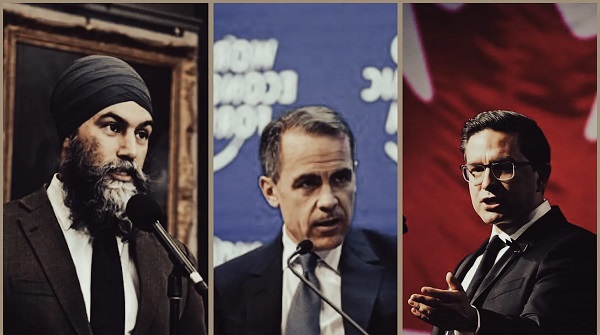
 2025 Federal Election1 day ago
2025 Federal Election1 day agoNDP Floor Crossers May Give Carney A Majority
-
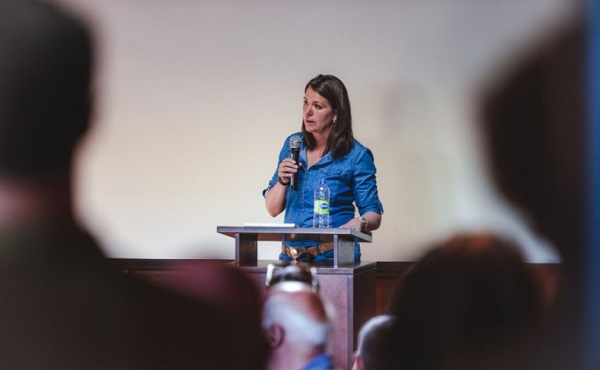
 Alberta2 days ago
Alberta2 days agoPremier Danielle Smith hints Alberta may begin ‘path’ toward greater autonomy after Mark Carney’s win
-
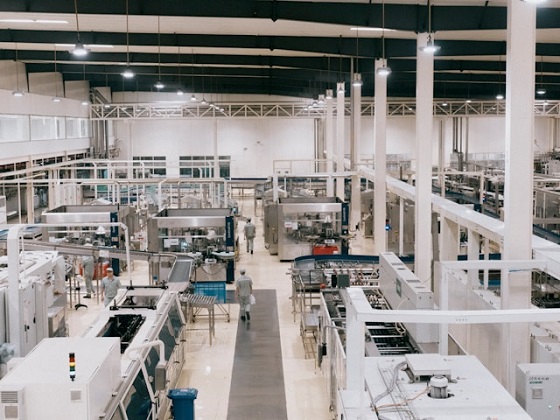
 Business23 hours ago
Business23 hours agoChina’s economy takes a hit as factories experience sharp decline in orders following Trump tariffs
-

 Alberta5 hours ago
Alberta5 hours agoIt’s On! Alberta Challenging Liberals Unconstitutional and Destructive Net-Zero Legislation
-
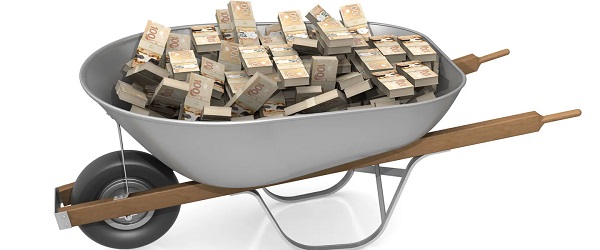
 Automotive1 day ago
Automotive1 day agoNew federal government should pull the plug on Canada’s EV revolution
-
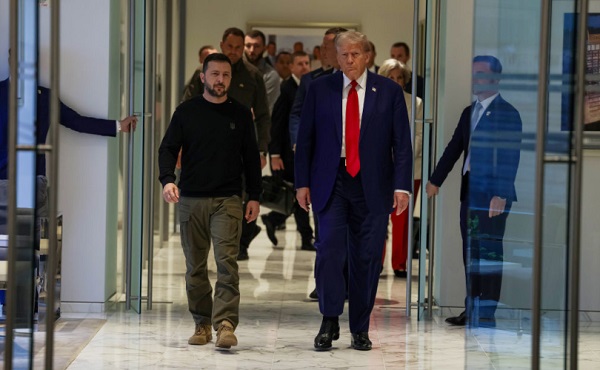
 Business1 day ago
Business1 day agoScott Bessent says U.S., Ukraine “ready to sign” rare earths deal
-
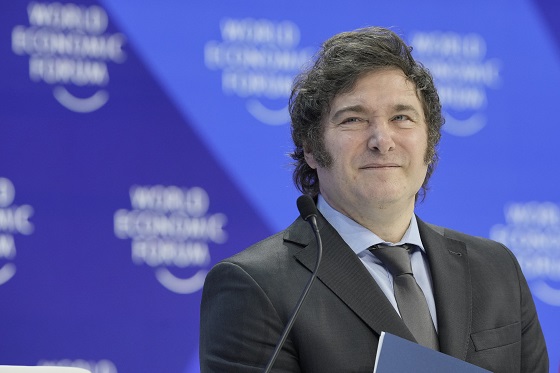
 International23 hours ago
International23 hours agoJavier Millei declassifies 1850+ files on Nazi leaders in Argentina
-

 Mental Health1 day ago
Mental Health1 day agoHeadline that reads ‘Ontario must pay for surgery to give trans resident both penis and vagina: appeal court’ a sign of the times in Canada





